Contact center of the Ukrainian Judiciary 044 207-35-46
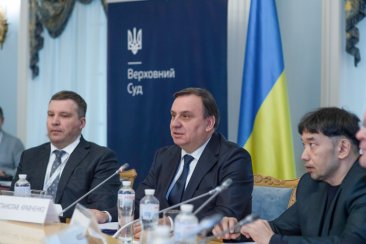
Ukraine and its citizens have chosen a clear course - to be part of the European community, to live in a democratic, legal, European state. Our country not only declares this, but also takes confident steps towards a European future. One of the components of Ukraine's European choice is adherence to the rule of law.
This was stated by the President of the Supreme Court, Stanislav Kravchenko, at the opening of the roundtable "Justice of the Future: Judicial Network and Access to Justice".
"The phrase 'justice of the future' has a deep meaning. If we do not think about the future, if we do not develop mechanisms for legal changes that will be introduced in the future, it will be very difficult for us to deal with today's problems," said Stanislav Kravchenko.
The event's moderator, Rustam Kolesnyk, editor-in-chief of Yurydychna Praktyka, noted that today's meeting was the first in a series of roundtables to be held. Proposals to address justice issues, including through legislation, will be formulated following a series of events.
.jpg)
The co-moderator of the roundtable, Oleksiy Kot, Director of the Institute of Lawmaking and Scientific Legal Expertise of the National Academy of Sciences of Ukraine, stressed the importance of outlining problematic issues in a circle of respected experts and seeking and finding solutions at the next scheduled events.
In his report, the President of the Supreme Court, Stanislav Kravchenko, identified the issue of staffing the judiciary as one of the key challenges of the day.
For example, in 2023 the courts dealt with 4.3 million appeals and cases of all kinds, while the number of judges is decreasing and now stands at less than 5,000.
"In order to fulfil the tasks entrusted to the judiciary, it is necessary to resolve the issue of court staffing as soon as possible, otherwise there is a risk that in the future, for objective reasons (due to excessive workload), judges will not be able to perform their duties properly," the President of the Supreme Court stressed.
Stanislav Kravchenko also drew attention to the increase in the number of cases filed with the courts - last year's total exceeded the level of 2021. This trend has been driven primarily by the war, as the vast majority of cases currently before the courts of all jurisdictions relate in one way or another to the consequences of russia's armed aggression.
Furthermore, the President of the Supreme Court highlighted the crucial role of the courts in documenting the evidence of war crimes committed by russian servicemen. Law enforcement agencies have registered more than 124,000 such proceedings, and in each of them the courts must ensure proper judicial control at the pre-trial investigation stage. In addition, more than a thousand cases in this category have already been examined on the merits by the courts of first instance, 76 war crimes sentences have been reviewed on appeal and 8 on cassation.
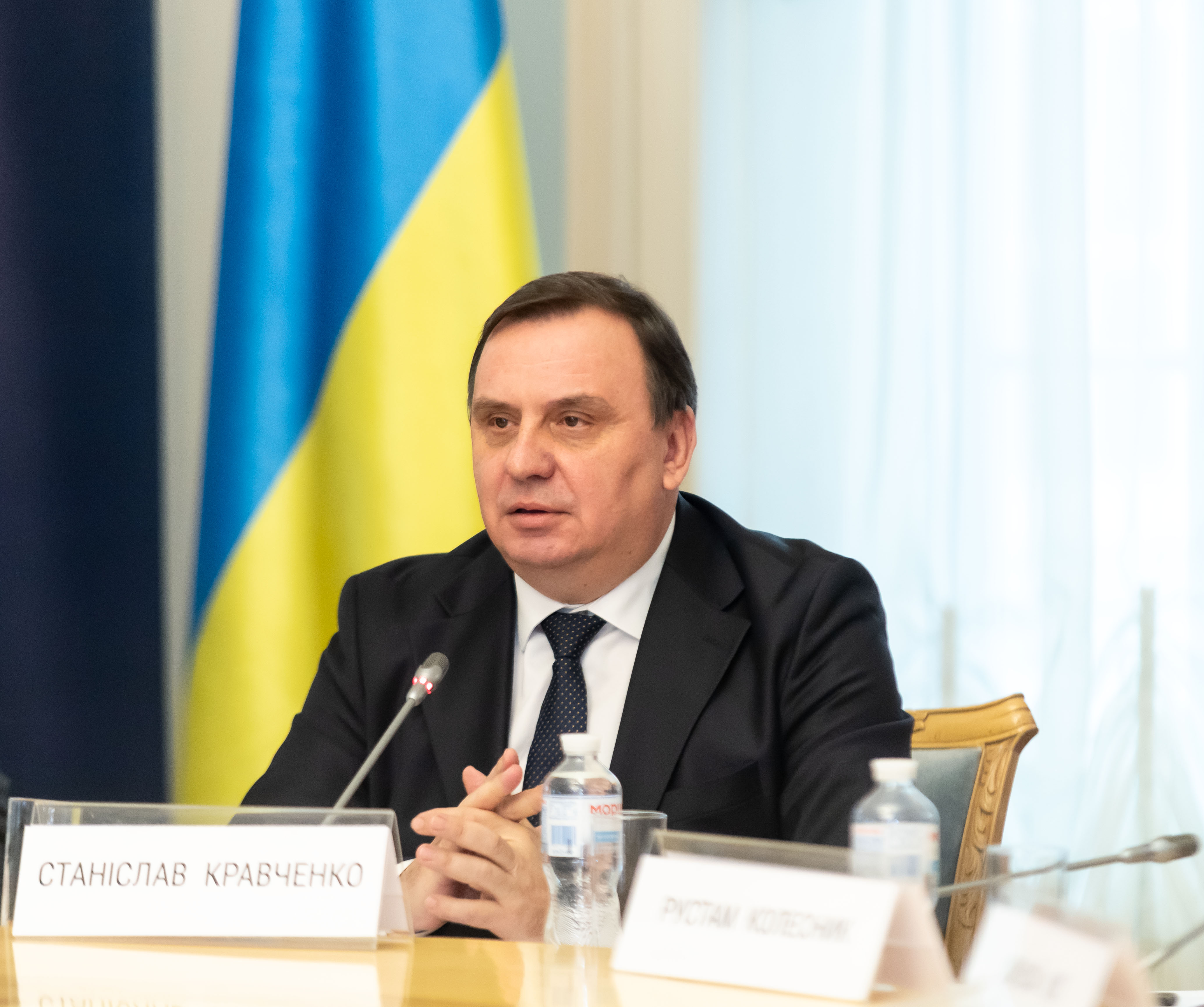
Administrative courts are also overburdened: the number of appeals to them reached 874 thousand in 2023. Stanislav Kravchenko noted that a significant number of cases involving the protection of citizens' rights against violations by public authorities is a problem in many countries, caused in particular by the establishment of social guarantees that are not backed up by adequate budgetary allocations.
According to the SC President, the proper functioning of the commercial courts has a direct impact on the country's investment climate and prospects for further economic development. Today, the civil courts have an equally important mission: to provide effective judicial protection to citizens who have suffered damage as a result of the war.
"At the same time, we must always be mindful of public confidence in the court. In October last year, the Supreme Court conducted a survey of participants in court hearings. According to the results of this survey, 80% of respondents trust the Court. At the same time, the media sometimes report much lower figures. The judiciary must present the real picture to the public, defend its positions and uphold the independence of the judiciary, because without an independent judiciary there can be no state governed by the rule of law," the SC President stressed.
Mykhailo Smokovych, President of the Administrative Cassation Court of the Supreme Court, focused on the role of the administrative court system in a democratic, legal European state and the future of administrative jurisdiction.

Addressing the participants of the roundtable, he first of all stressed that if the government is not afraid of its people, it creates administrative courts, through which people can exercise control over it. Part 5 of Article 125 of the Constitution of Ukraine provides that administrative courts shall act to protect the rights, freedoms and interests of individuals in the field of public law relations. "The fact that administrative courts have been enshrined in the Constitution demonstrates the importance of such courts for the state and its citizens, as well as the fact that the establishment of administrative justice is a fundamental requirement for a democratic society," said Mykhailo Smokovych.
The President of the SC Administrative Cassation Court recalled the ECHR judgment of 7 June 2001 in the case of Kress v. France, in which it was emphasised that the judges of the administrative courts have a special status which is different from that of the judges of the ordinary courts; in practice they are both independent and functionally indispensable. In accordance with paragraph 31 of this judgment, in 1980 the Constitutional Council enshrined the functioning and independence of the administrative judiciary as one of the basic constitutional principles defined by the legislation of the republic.
Moreover, in its judgment in Kress v. France, the ECHR stated that the very establishment and existence of administrative tribunals may be regarded as the most significant achievement of the legal state, especially since the right of these tribunals to rule on the actions of administrative bodies has been recognised with some resistance.
Also, emphasising the importance of the functions of administrative courts and the need for their further effective operation, the President of the SC Administrative Cassation Court highlighted the conclusions contained in the Decision of the Constitutional Court of Ukraine dated 1 March 2023 No. 2-р(ІІ)/2023 in the case on the constitutionality of certain provisions of the Code of Administrative Proceedings of Ukraine. In this decision, the Constitutional Court of Ukraine stated that the ability of a person to effectively appeal against acts of public authorities, their officials and employees, their actions or omissions ensures the accountability of these bodies and their officials and employees for their decisions, actions or omissions. That is why administrative justice is a core element of democratic governance and its effectiveness is fundamental to any society based on the rule of law.
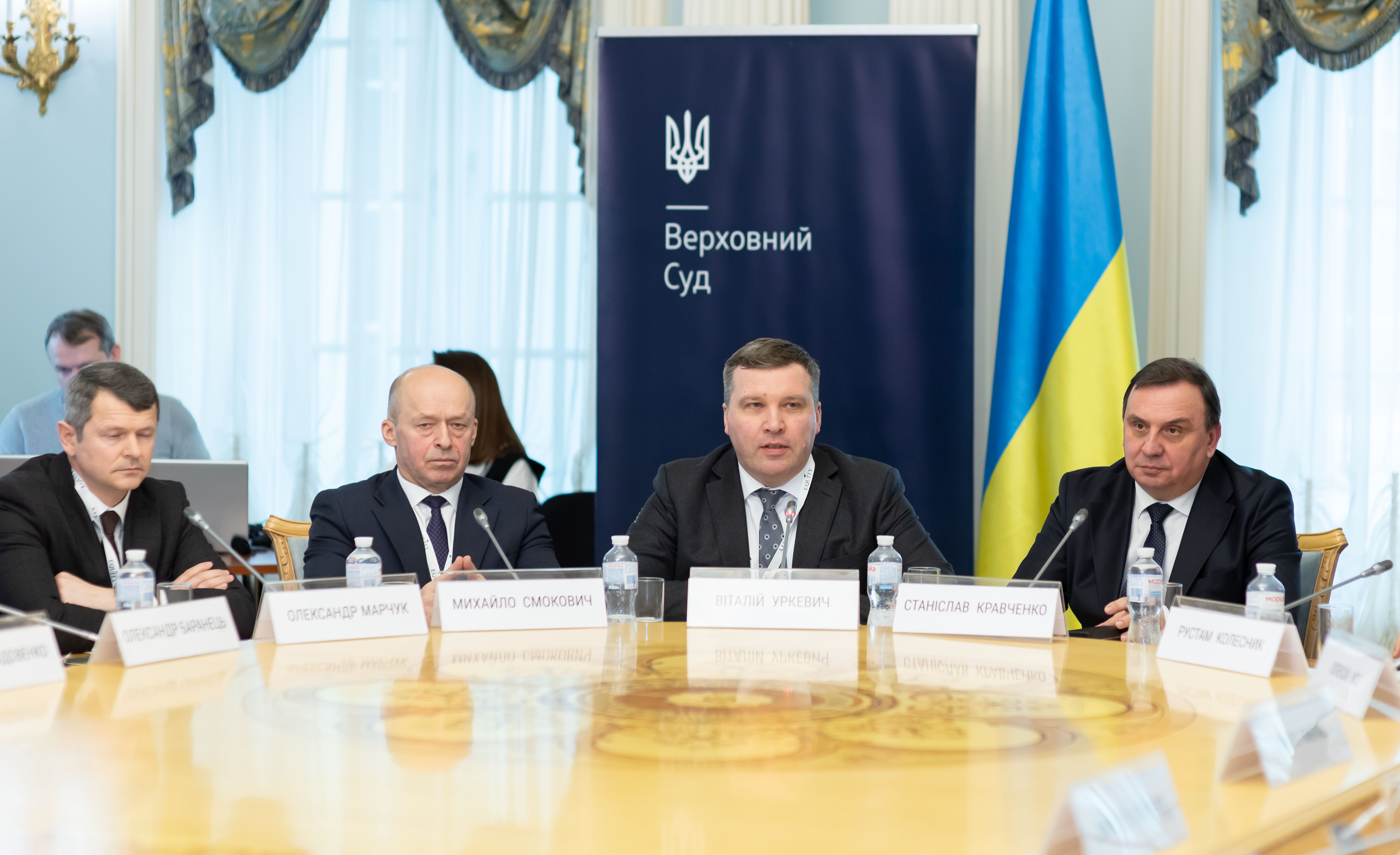
Vitalii Urkevych, Secretary of the Grand Chamber of the Supreme Court, presented the results of the work of the Grand Chamber in 2023. According to him, last year the Grand Chamber of the Supreme Court continued to fulfil its main task of ensuring the uniformity of case law. In total, in 2023, 608 procedural applications, complaints and cases were pending before the Grand Chamber, 485 materials were reviewed and 183 decisions were made on the merits. Behind these figures are exceptional legal problems, issues of determining the jurisdiction of disputes and formulating new legal conclusions.
Vitalii Urkevych also quoted some of the Grand Chamber's key conclusions. Among them are conclusions on compensation for expropriated property under the legal regime of martial law (Resolution of 13 September 2023 in case No. 757/64569/16-ц); return of the Tereshchenko estate, a cultural heritage site, to the municipal ownership of Kyiv (Resolution of 12 September 2023 in case No. 910/8413/21); correlation and application of statutes of limitations provided for in different parts of Art. 49 of the Criminal Code of Ukraine (Resolution of 2 February 2023 in case No. 735/1121/20); the possibility for individuals to apply to the court using an electronic means of identification via an official email address (Resolution of 13 September 2023 in case No. 204/2321/22); exemption of the defendant - an individual from paying the court fee when filing an appeal or cassation appeal (Resolution of 29 November 2023 in case No. 906/308/20).
"The legal opinions expressed by the Grand Chamber of the Supreme Court are reliable guidelines for the courts of first instance and appellate courts and will guarantee predictability and stability of court practice," the Secretary of the SC Grand Chamber noted.
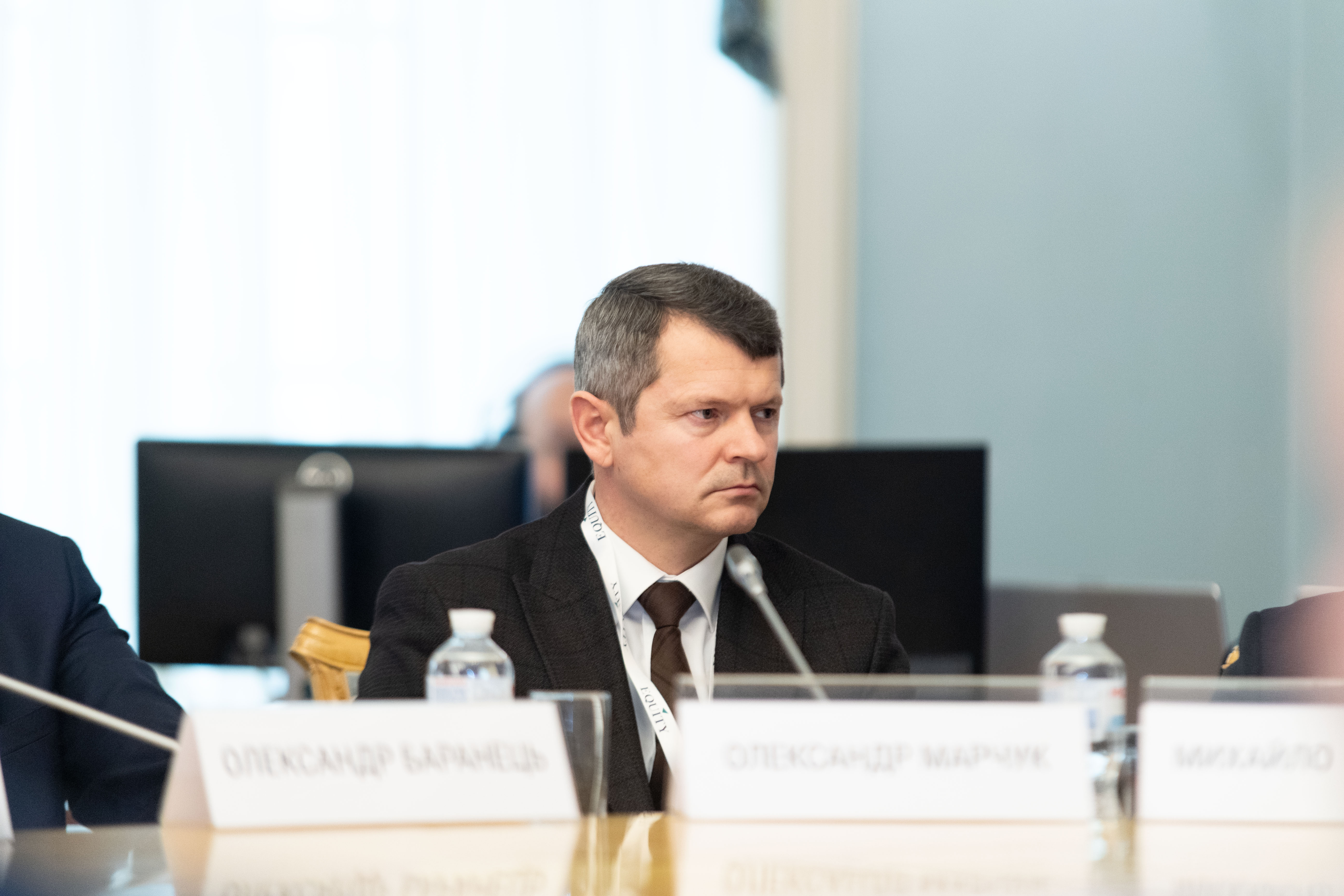
Regarding the need for the existence and functioning of the Grand Chamber of the Supreme Court, Vitalii Urkevych noted that it should not be forgotten that the Grand Chamber acts as a kind of arbitrator between the cassation courts in the presence of different views in the context of interpretation of law and law enforcement. In addition, it is now the SC Grand Chamber that provides appellate review of court decisions in administrative cases in which the parties are the highest state authorities - the Verkhovna Rada of Ukraine, the President of Ukraine, as well as the High Council of Justice and the High Qualification Commission of Judges of Ukraine. In addition, the SC Grand Chamber is the sole body of judicial control in disciplinary proceedings against judges and has exclusive jurisdiction to review decisions of national courts in exceptional circumstances on the basis of the ECHR's finding that Ukraine has violated the Convention for the Protection of Human Rights and Fundamental Freedoms.
Dmytro Lukianov, Deputy Head of the High Council of Justice, focused on aspects related to the continuation of judicial reform in Ukraine in the context of European integration processes. In particular, he spoke about the trend towards the digitalisation of justice, cited statistics on the excessive workload of the courts and outlined the results of the implementation of the Strategy for the Development of the Justice and Constitutional Judiciary for 2021-2023.
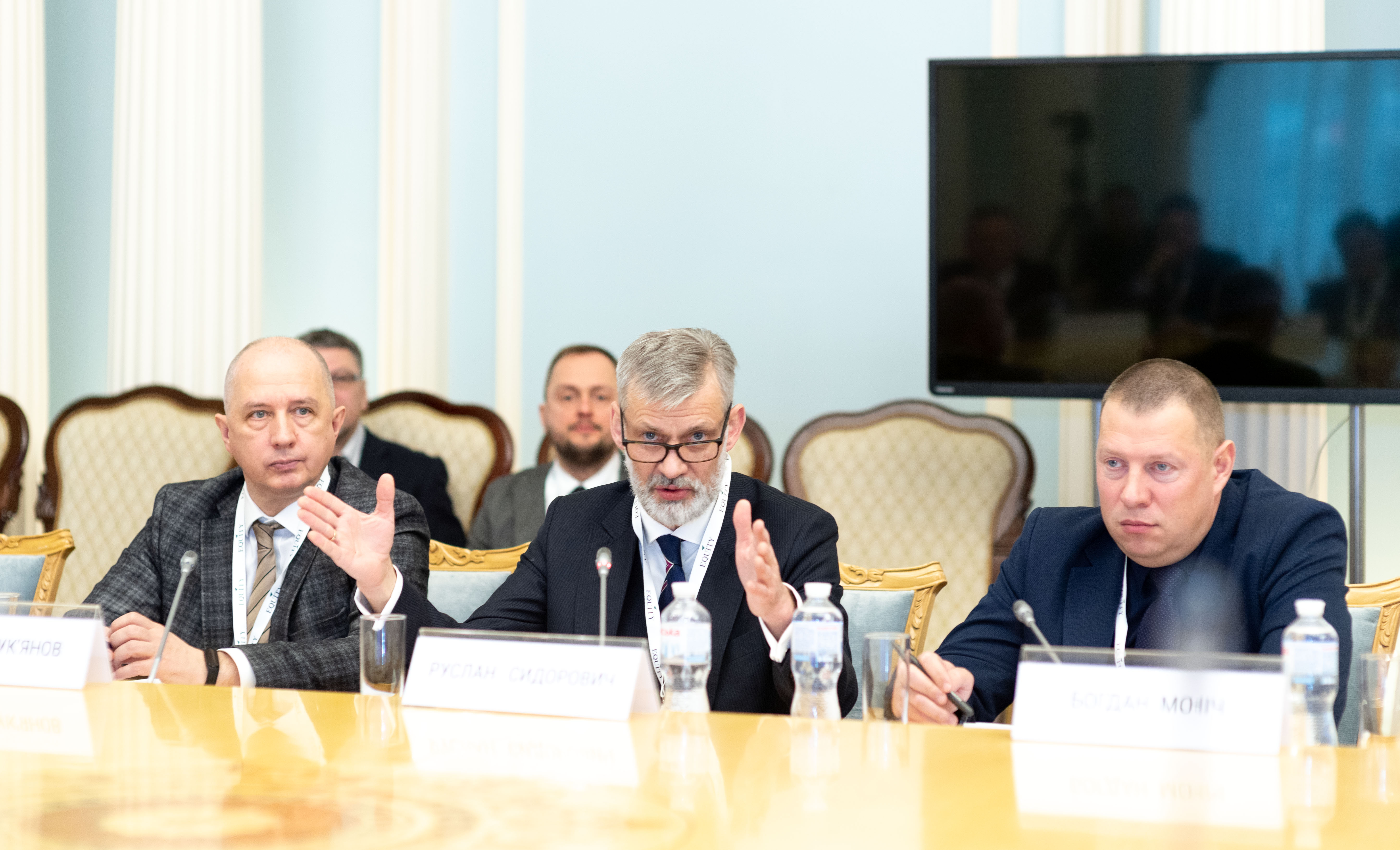
Ruslan Sydorovych, Deputy Head of the High Qualification Commission of Judges of Ukraine, provided information on the progress of the procedures initiated by the Commission last year and noted the existing problems in overcoming the shortage of staff in the courts. He added, inter alia, that in order to speed up the process of filling vacant judicial posts, the HQCJ of Ukraine for the first time introduced the submission of documents for participation in the competition for the positions of judges of appellate courts through an electronic system and created conditions for filling electronic dossiers of candidates for the position of judge.
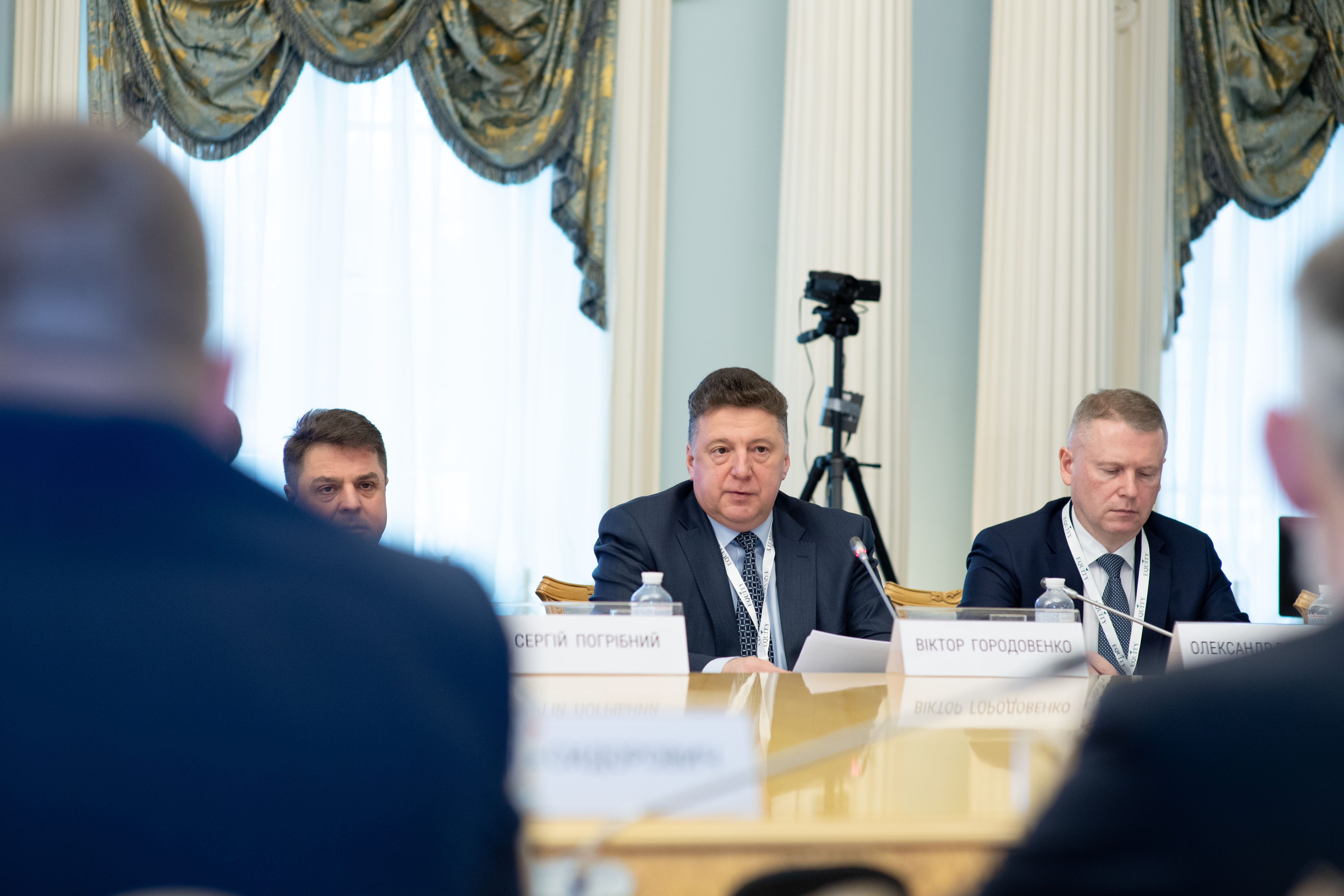
The future of the Constitutional Court of Ukraine as a body of constitutional control was discussed by CCU Judge Viktor Horodovenko. According to him, the emergence of constitutional courts is a key element in the system of checks and balances, which is constantly evolving. The CCU judge also noted that constitutional courts in every country should ensure the sustainable development of the state, in particular by protecting the constitutional rights and freedoms of man and citizen.
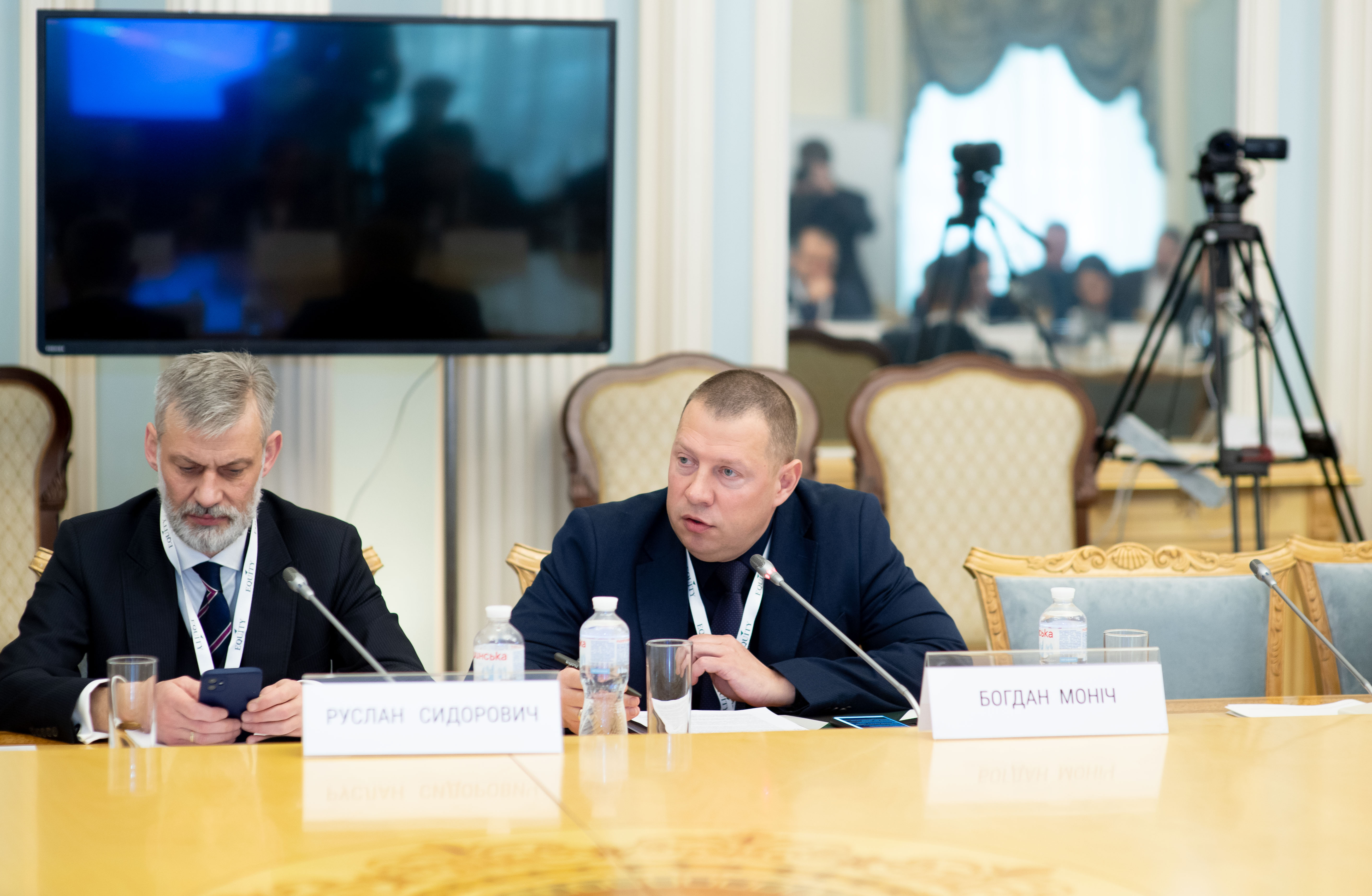
Bohdan Monich, Head of the Council of Judges of Ukraine, spoke about the reform of the court network in Ukraine in the context of the completion of the reform of the administrative and territorial structure. According to him, it is crucial to enhance the efforts that were initiated a few years ago to create and review proposals for improving the Ukrainian court map. This is important in order to distribute the workload of the judges evenly.

Oleh Khrypun, President of the Northern Commercial Court of Appeal, emphasised the need for effective use of judicial potential, including intellectual potential, in the administration of justice. He expressed the opinion that the excessive workload of judges makes it difficult for them to make qualified decisions. Therefore, in his view, the courts should focus only on resolving factual disputes and not on other work, such as statistical work.
Oleksandr Korovaiko, President of the Kherson Court of Appeal, spoke about the peculiarities and prospects of restoring justice in the de-occupied territories. He said that on 12 June 2023, several courts in the Kherson region resumed their work, as the need for justice was urgent. It was extremely difficult to establish the work of these courts because their premises were destroyed and looted by the occupying forces. According to Oleksandr Korovaiko, it would be advisable to create a pilot project (for example, based on the Kherson Appeal District) to develop a step-by-step mechanism for the resumption of court activities in the de-occupied territories.
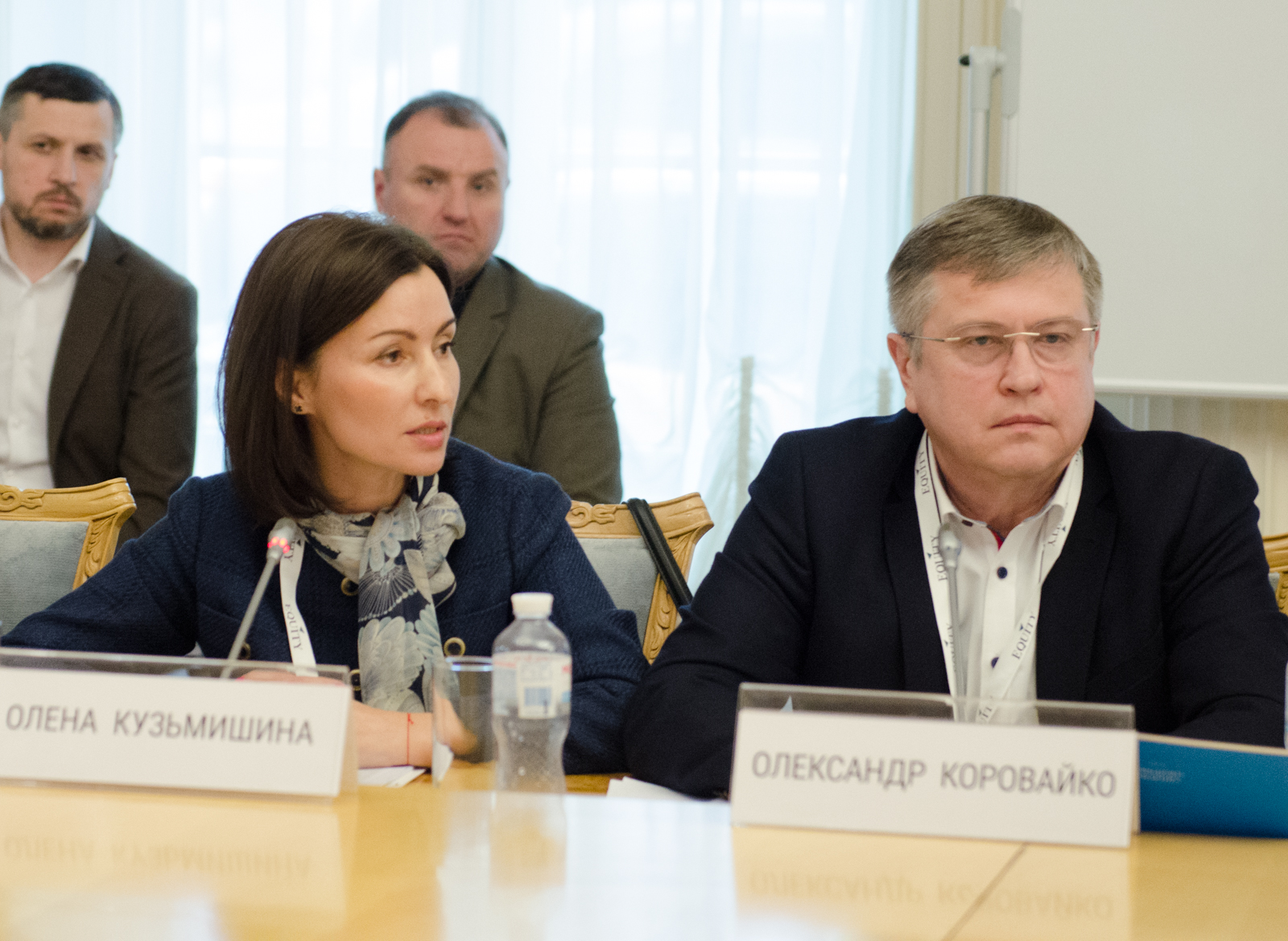
The head of the Sixth Administrative Court of Appeal, Olena Kuzmyshyna, spoke about the problem of the judicial system - the loss of human resources, which she said was unlikely to be fully restored in the near future. The speaker paid particular attention to the issue of media coverage of the activities of the judiciary and financial support for the judiciary.
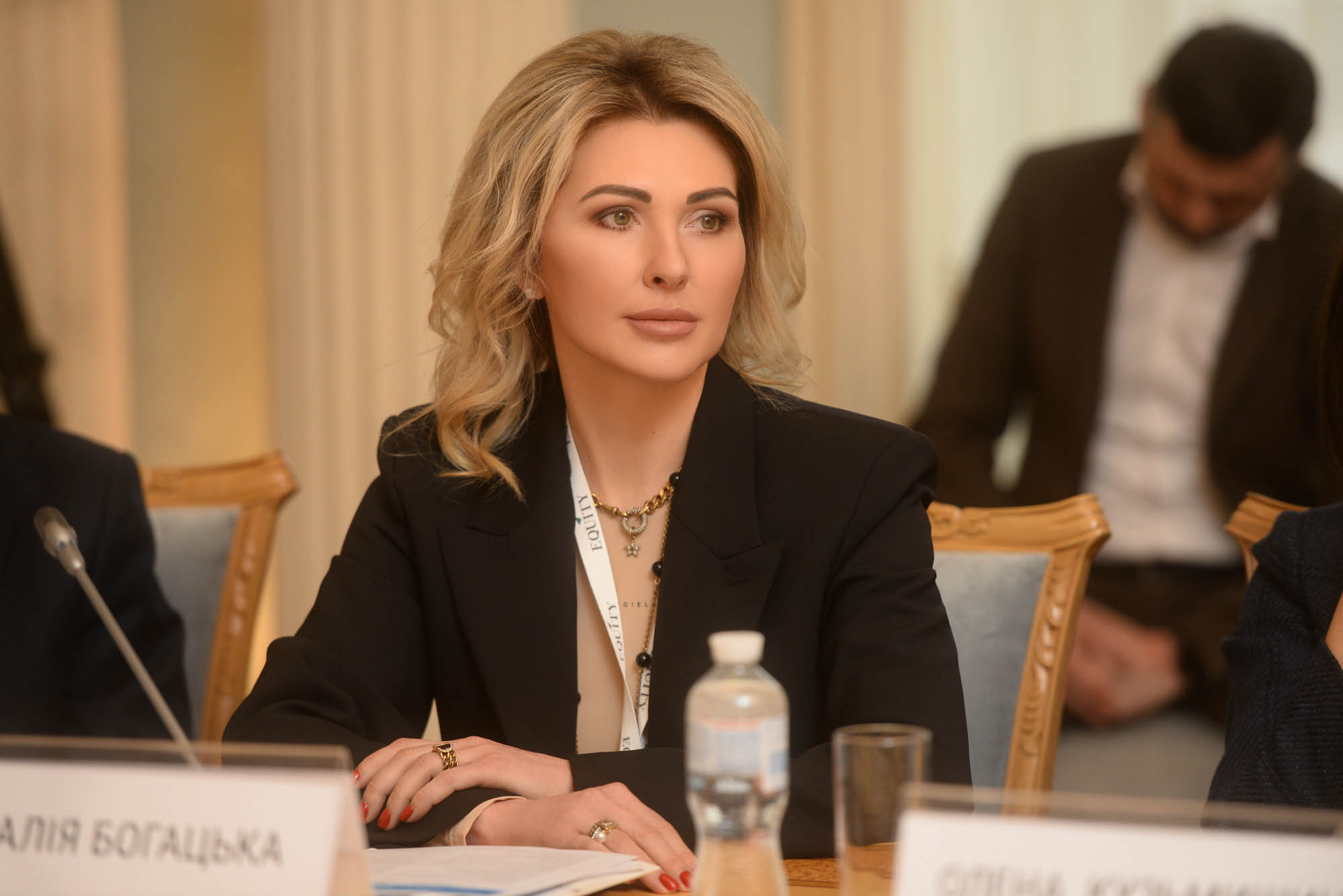
Nataliia Bohatska, President of the South-Western Commercial Court of Appeal and Chairman of the Association of Judges of Commercial Courts of Ukraine, spoke on the topic "Commercial Court as a specialised economic court hearing cases related to investment activities: are there any alternatives?". In particular, the speaker discussed the need to apply European practices in order to improve the protection of investors' interests, a clear legal regulation of these issues and the introduction of specialisation in the resolution of investment disputes.
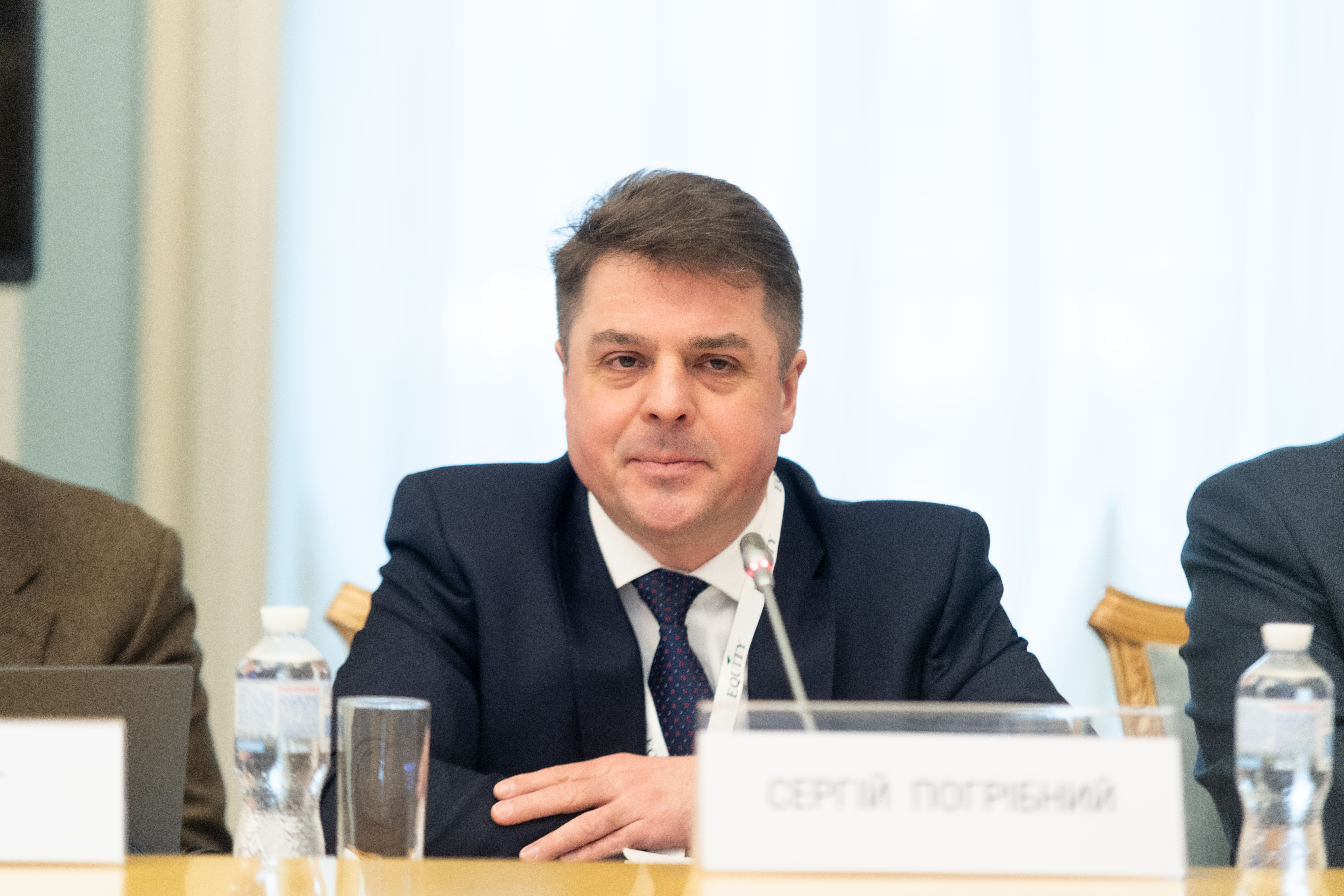
Judge of the Grand Chamber of the Supreme Court Serhii Pohribnyi focused on the mechanisms for overcoming the discrepancies in the Supreme Court's case law and explained the factors influencing the deviations from the legal opinions previously formulated by the Court.

Oleksandr Oliinyk, Director of the Directorate of Justice and Criminal Justice of the Ministry of Justice of Ukraine, spoke about the possibility of introducing trans-jurisdictional online case review in Ukraine.

Oksana Myronko, Head of Communications at the European Business Association (EBA), presented the results of the Judicial Index survey and provided comments and suggestions from the business community in the context of the rule of law. Currently, the integral value of the index is 2.73 out of 5, the same as in 2022 and 0.22 higher than in 2021.

Pavlo Pavlish, Deputy Chairman of the Verkhovna Rada Committee on Legal Policy, took part in the roundtable and spoke about the results of the implementation of the Strategy for the Development of the Justice and Constitutional Judiciary for 2021-2023. He highlighted the positive results of the work of the HQCJ of Ukraine and noted that the Committee has already established a working group on the reform of legal education, which will further influence the development of the entire judicial system.

Oleksandr Baranets, Secretary of the Judicial Chamber for Corporate Disputes, Corporate Rights and Securities of the Commercial Cassation Court of the Supreme Court, focused on the priority areas of work of commercial courts in general and the Commercial Cassation Court of the Supreme Court in particular, as well as on the protection of investors' rights. The speaker provided some statistical data characterising the activities of the economic jurisdiction. For example, while in 2022 a case in the Commercial Cassation Court of the Supreme Court took an average of 55 days to be considered, in 2023 it took 45 days. In other words, the timeframe for considering cases in the Commercial Cassation Court of the Supreme Court is decreasing. The average time taken for a case to be heard by the commercial courts of all instances is 8 months.

Viacheslav Krahlevych, Partner at EQUITY, presented a report "Independent Court through the Eyes of a Lawyer" and suggested ways to solve the existing problems.
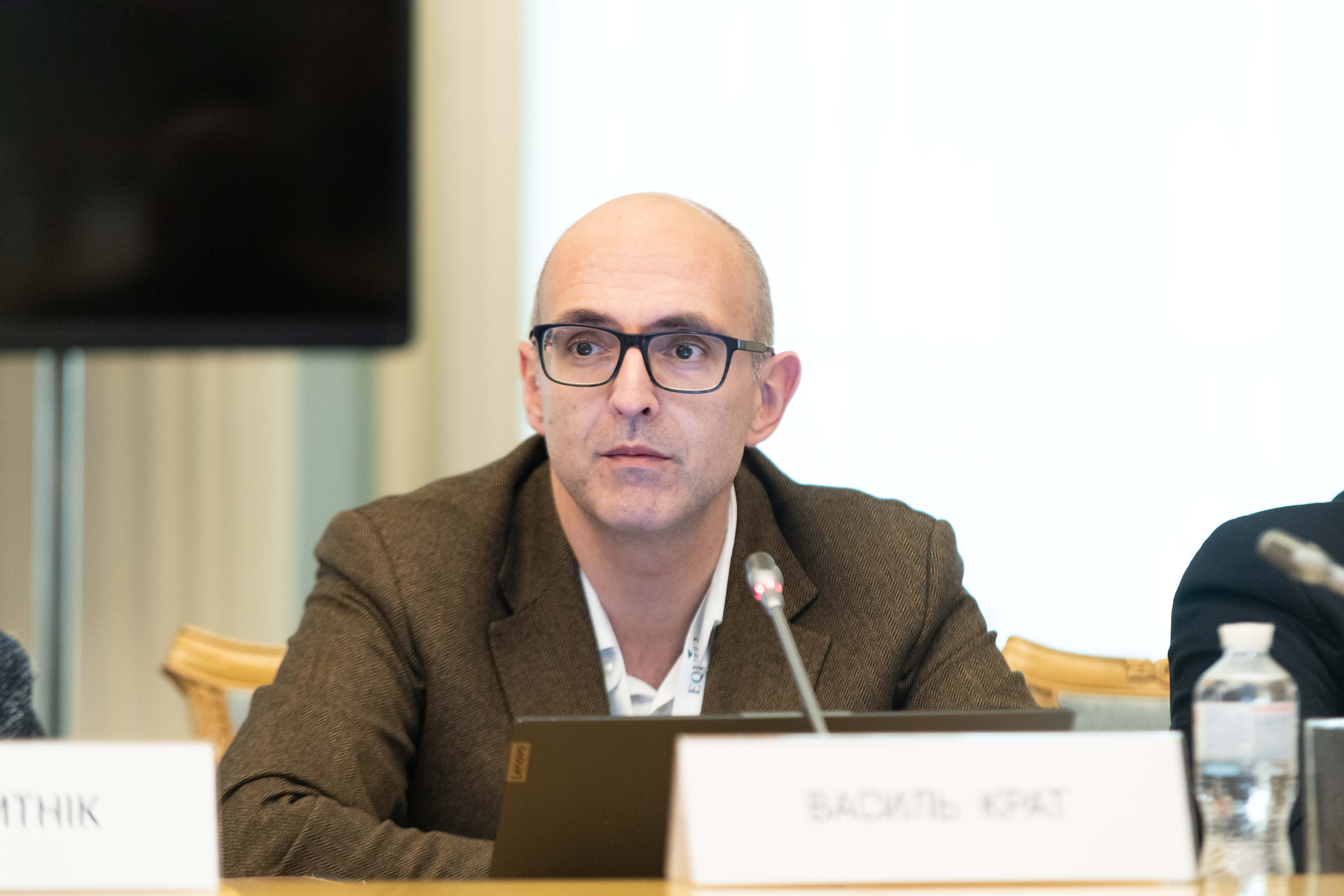
Vasyl Krat, a Supreme Court judge in the Civil Cassation Court, reflected on what a judge should look like in 10-12 years and the possibilities of using AI in both national and international proceedings. His colleague, Olena Sytnik, a Supreme Court judge at the Civil Cassation Court, stressed that without a systematic approach to reforming the judicial system, there will not be the result that everyone expects.
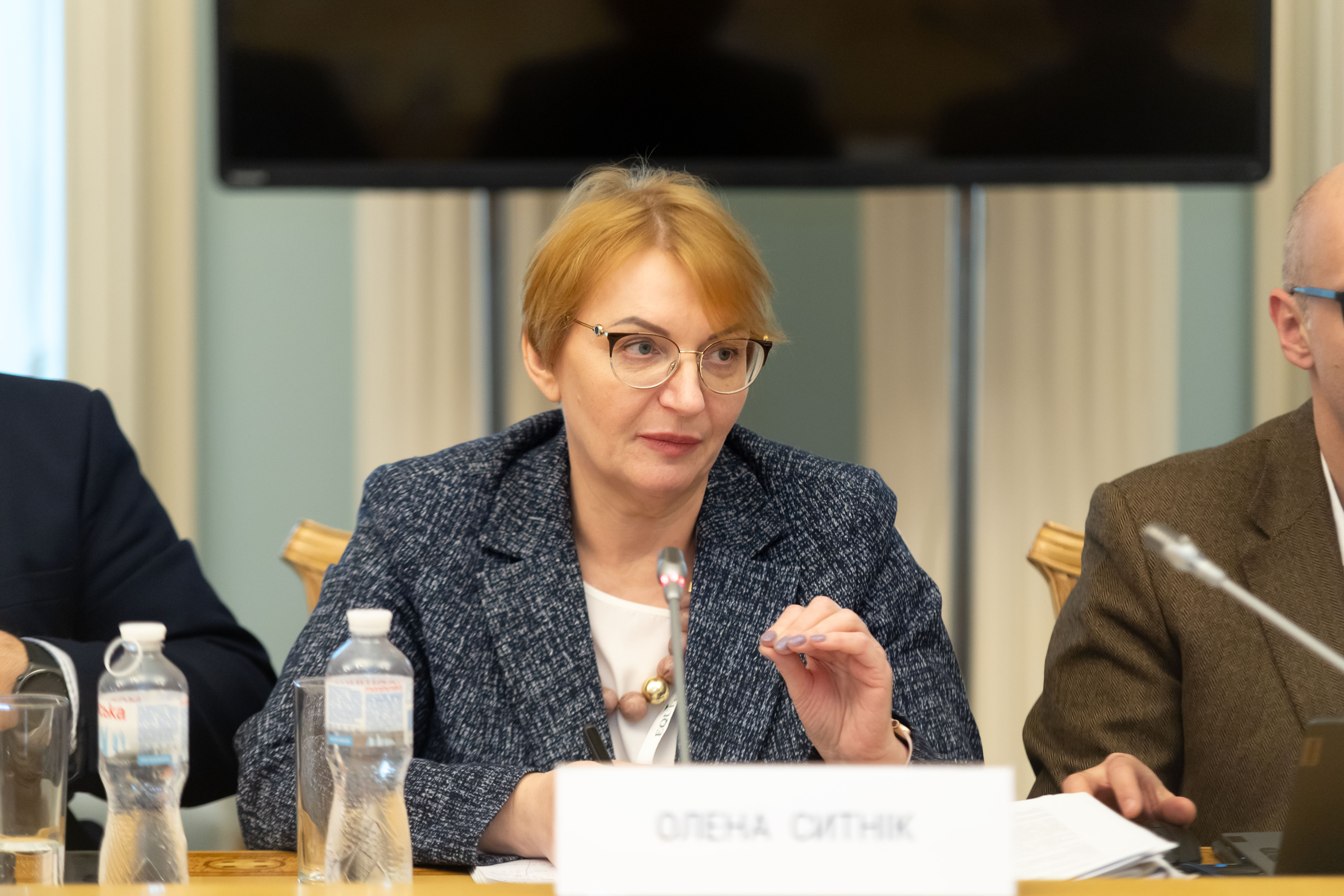
Inna Yemelianova and Volodymyr Nahnybida, Vice Presidents of the ICAC at the UCCI, spoke about the place and role of alternative dispute resolution and investment dispute resolution.
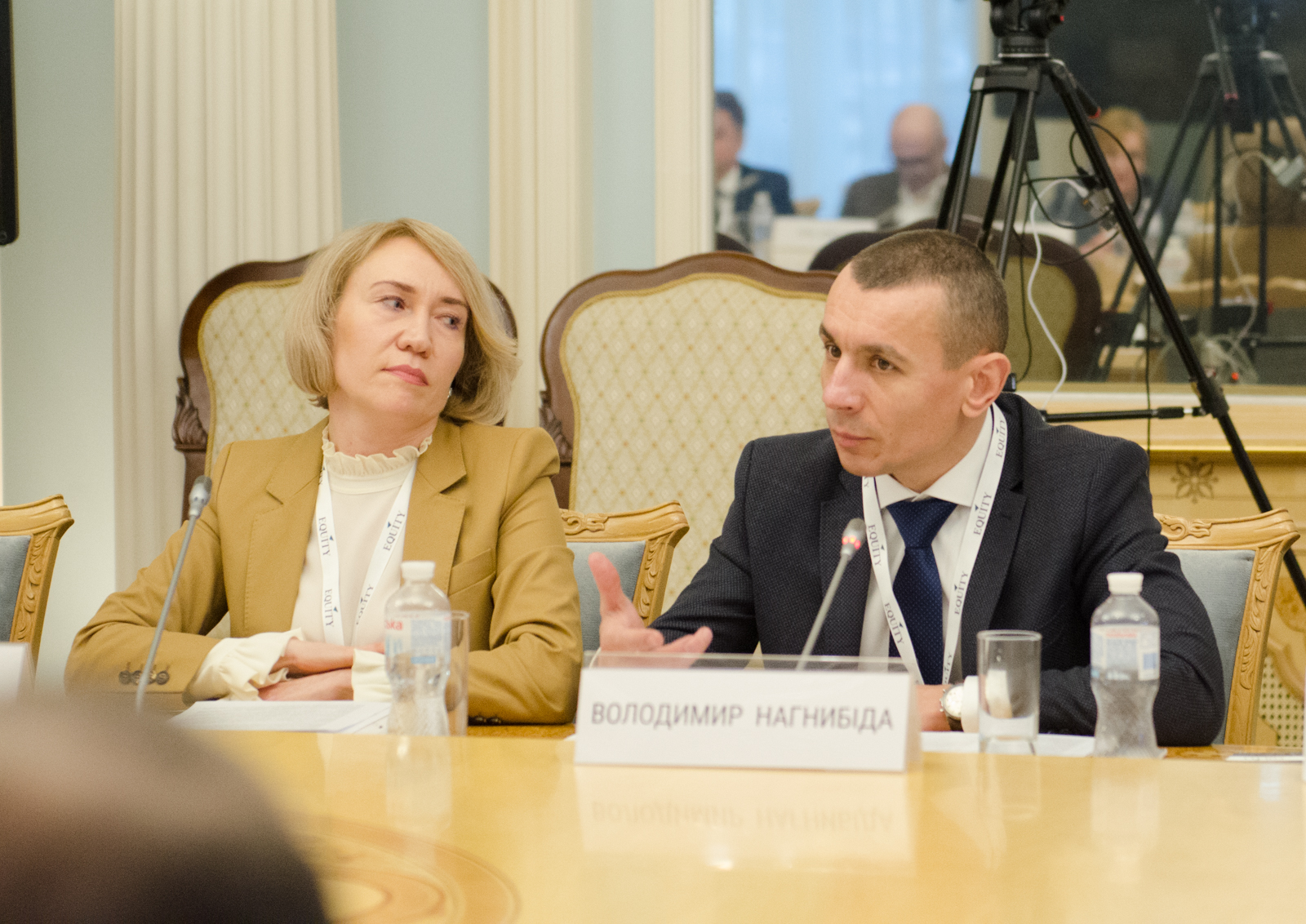
Oleh Tkachuk, a judge of the Grand Chamber of the Supreme Court, outlined the conditions under which it is possible to optimise and balance the workload of the judiciary and stressed the need to create a military justice system.

Arsen Miliutin, Deputy CEO of the Management Board of Oschadbank JSC, spoke about the problematic issues of the judicial system from the business perspective.
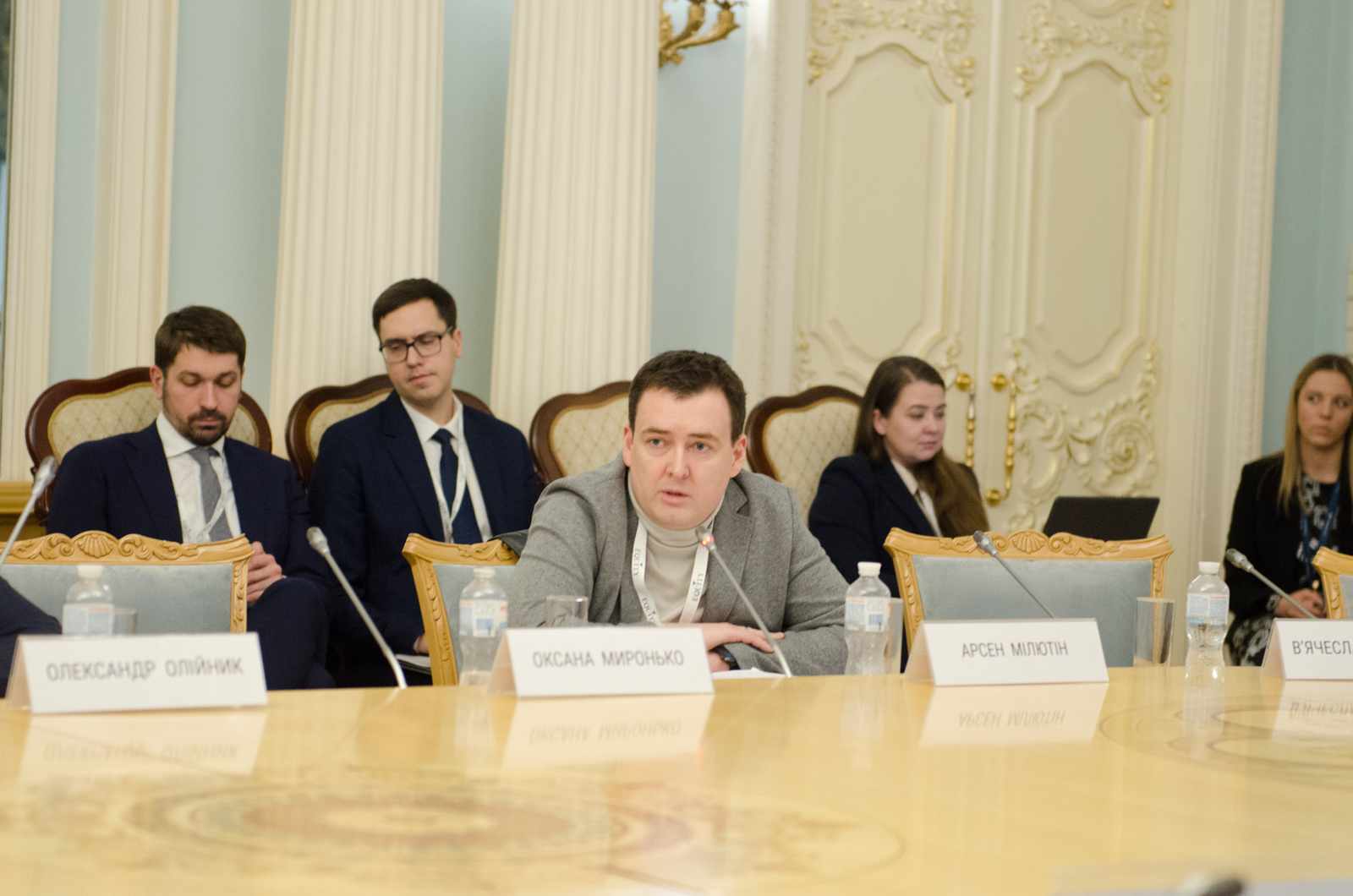
During the roundtable, the President of the Supreme Court, Stanislav Kravchenko, presented certificates and badges of honour to the members of the Scientific Advisory Council of the Supreme Court - Andrii Hryniak, Oleksii Kot and Vasyl Shakun.

The roundtable discussion "Justice of the Future: Judicial Network and Access to Justice" was organised by the Yurydychna Praktyka Publishing House with the support of the Supreme Court, the High Council of Justice and the Institute of Lawmaking and Scientific Legal Expertise of the National Academy of Sciences of Ukraine.
Video of the event is available at https://www.youtube.com/watch?v=821FcQ1uImo.
